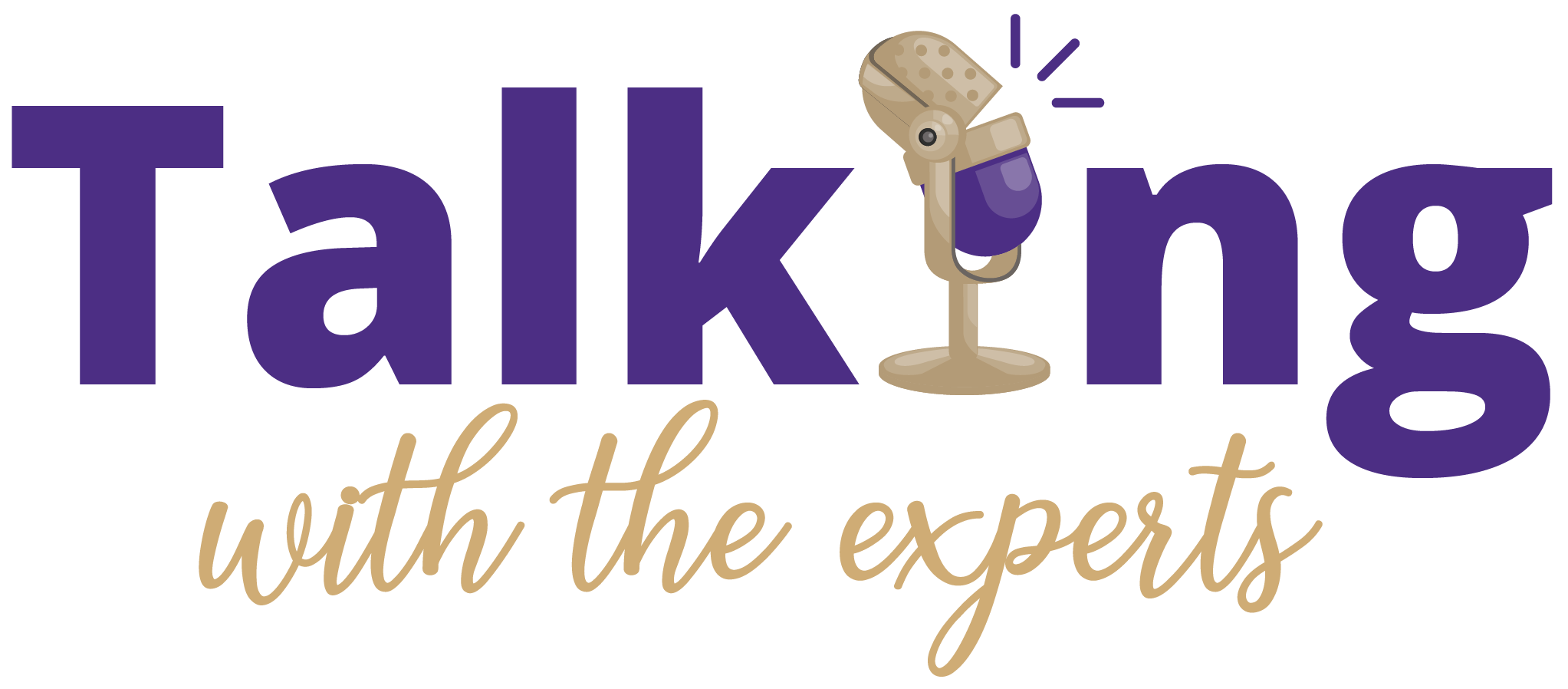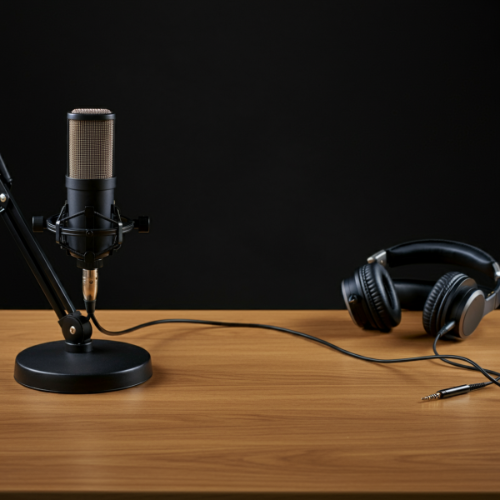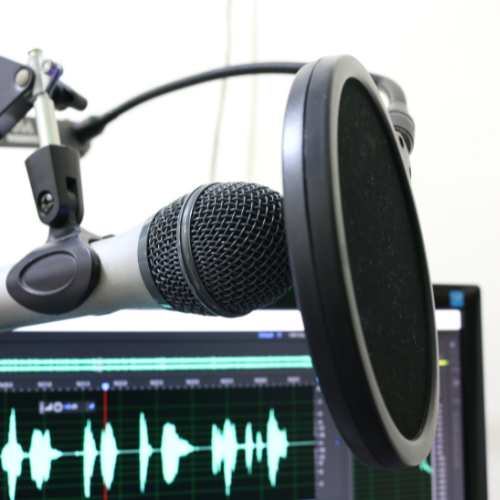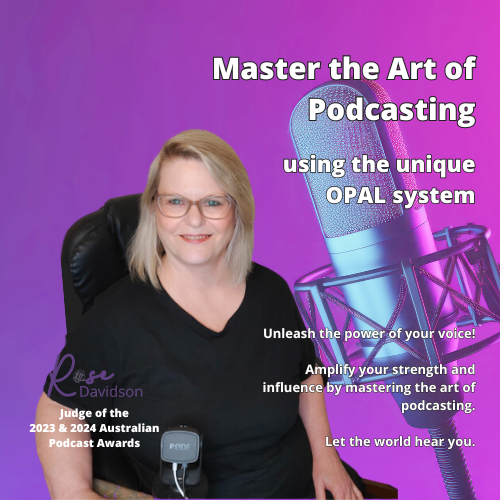Podcasting has quickly grown into one of the most effective and accessible platforms for content creators, businesses, and thought leaders. However, despite its growing popularity, podcasting comes with its own set of challenges. From content creation and technical issues to audience growth and monetization, podcasters face several obstacles on their journey to success.
In this comprehensive article, we’ll address the most common podcasting challenges and provide actionable solutions to overcome them. Whether you’re just starting or are an experienced podcaster, these tips will help you tackle the hurdles that can stand in the way of podcasting success.
Challenge: Finding Engaging Podcast Topics
One of the biggest challenges for podcasters is consistently coming up with fresh and engaging content ideas. Without interesting and relevant topics, it’s easy for listeners to lose interest, which can hurt your growth and retention efforts.
Solution: Plan Ahead with a Content Calendar
For solo podcasts, a well-organised content calendar can be a game-changer for podcasters. By planning your episodes in advance, you can ensure a steady flow of content that resonates with your audience. Here’s how to create and manage a content calendar:
– Brainstorm ideas: Set aside time to brainstorm potential topics based on industry trends, listener questions, and current events.
– Mix up formats: Consider alternating between solo episodes, interviews, guest appearances, or panel discussions to keep your content dynamic.
– Incorporate audience input: Use social media polls or direct questions to ask your audience what they want to hear.
– Plan around key dates: Leverage holidays, seasons, or major industry events to create relevant episodes.
Having a content calendar not only helps with idea generation but also ensures that you’re staying consistent, which is essential for keeping your audience engaged.
Challenge: Technical Setup and Equipment Issues
Many podcasters struggle with the technical aspects of podcasting. Issues such as poor audio quality, confusing editing software, or equipment malfunctions can impact the quality of your podcast and make it difficult to deliver a professional product.
Solution: Invest in the Right Tools and Educate Yourself
To overcome technical challenges, it’s crucial to invest in quality equipment and take the time to learn how to use it. Here are some steps to ensure a smooth technical setup:
– Get a quality microphone: Good audio is the foundation of a successful podcast. Consider investing in a mid-range microphone like the Audio-Technica ATR2100x or the Shure SM7B.
– Use proper recording software: Choose user-friendly recording software like Audacity (free) or Adobe Audition (paid). Spend time learning the basics of recording and editing to ensure high-quality audio.
– Test your equipment: Always test your setup before recording to avoid unexpected malfunctions.
– Set up a quiet recording space: Find a space with minimal background noise. You could use foam panels or blankets to reduce echo and improve sound quality.
– Learn basic editing techniques: Familiarize yourself with basic editing, including cutting out background noise, adjusting volume levels, and adding music or sound effects.
Mastering your equipment and editing software will not only improve your audio quality but will also streamline the production process.
Challenge: Growing and Engaging Your Audience
Audience growth is one of the most common podcasting challenges. You may have great content, but if you’re not attracting or retaining listeners, your podcast’s reach will remain limited.
Solution: Develop a Strong Promotion and Engagement Strategy
Growing your podcast requires consistent promotion and active audience engagement. Here are some strategies to boost your podcast’s visibility and build a loyal listener base:
– Leverage social media: Promote your podcast on platforms like Instagram, Twitter, and LinkedIn by sharing episode previews, quotes, and behind-the-scenes content. Use hashtags like #NewEpisode or #PodcastRecommendations to increase discoverability.
– Collaborate with other podcasters: Cross-promote by guesting on other podcasts in your niche or inviting fellow podcasters to your show. This exposes your podcast to new audiences.
– Encourage listener interaction: Ask your audience to leave reviews, send in questions, or share episode ideas. Incorporate listener feedback into future episodes.
– Optimise your podcast SEO: Use relevant keywords in your episode titles, descriptions, and show notes to improve discoverability on platforms like Apple Podcasts and Spotify.
– Create a newsletter: Build an email list and send regular newsletters with updates about upcoming episodes, behind-the-scenes content, and exclusive offers.
Engaging with your audience on multiple platforms and consistently promoting your content will lead to long-term growth and loyalty.
Challenge: Staying Consistent
Consistency is key to building a successful podcast, but many podcasters struggle with maintaining a regular publishing schedule. Busy schedules, creative burnout, or lack of planning can all lead to missed episodes or irregular posting.
Solution: Create a Realistic Production Workflow
Developing a production workflow that suits your schedule and capabilities is critical to maintaining consistency. Here are some tips to help you stay on track:
– Batch record episodes: Instead of recording one episode at a time, try batch recording several episodes in one sitting. This gives you a buffer of content and reduces the pressure of last-minute recording.
– Use a content calendar: Plan your episodes at least a month in advance to ensure you have a steady stream of content ready to go.
– Set realistic goals: If a weekly schedule feels too overwhelming, switch to a bi-weekly or monthly schedule. Consistency is more important than frequency.
– Delegate tasks: If possible, delegate editing, social media promotion, or guest outreach to a team member or freelancer.
A well-organized workflow will keep you consistent and allow you to focus on delivering quality content without feeling overwhelmed.
Challenge: Securing Interesting Guests
Getting guests for your podcast can be challenging, especially if you’re just starting out or if you’re targeting high-profile individuals. Without guests, your episodes may lack variety, and you might miss out on valuable cross-promotion opportunities.
Solution: Build Relationships and Leverage Your Network
To secure interesting guests for your podcast, it’s important to build relationships and utilize your network effectively. Here’s how:
– Start with your network: Reach out to friends, colleagues, or industry peers who have valuable insights to share. These initial guests can help you build credibility and make it easier to attract bigger names in the future.
– Cold outreach: Don’t be afraid to reach out to potential guests via email or social media. Personalize your message, explain why their presence would add value to your show, and share any relevant audience stats or achievements to showcase your podcast’s reach.
– Offer mutual benefits: Explain how the guest can benefit from appearing on your podcast, whether it’s promoting their latest project, building their personal brand, or connecting with your audience.
– Leverage past guests: After recording with a guest, ask them if they know anyone who might be a good fit for your podcast. Referrals from previous guests can help you connect with new individuals.
Building a network of contacts and maintaining good relationships with guests will make it easier to secure interesting and relevant interviews.
Challenge: Monetising Your Podcast
Many podcasters aspire to monetize their show, but turning a podcast into a profitable venture can be difficult, especially if you’re still growing your audience.
Solution: Explore Multiple Monetisation Strategies
Podcast monetisation can take many forms. Instead of relying solely on sponsorships, consider diversifying your revenue streams. Here are some ways to monetize your podcast:
– Sponsorships and ads: Once your podcast has a steady following, you can partner with brands for sponsorships or run ads during episodes. Platforms like Podcorn or AdvertiseCast can help connect you with potential sponsors.
– Patreon or listener support: Offer exclusive content, ad-free episodes, or behind-the-scenes material in exchange for financial support through platforms like Patreon. This can build a loyal base of listeners willing to support your work.
– Affiliate marketing: Promote products or services that align with your podcast’s theme and audience. Earn commissions from affiliate links shared in your show notes or mentioned during episodes.
– Sell merchandise: Create and sell branded merchandise such as t-shirts, mugs, or stickers featuring your podcast logo or slogans. This can help increase brand visibility while generating revenue.
– Offer courses or consulting: If you’re an expert in your field, consider offering online courses, webinars, or consulting services to your audience.
By exploring different monetization strategies, you can create a steady income stream while continuing to provide value to your listeners.
Challenge: Dealing with Negative Feedback
Receiving negative feedback or criticism can be disheartening, especially if you’ve put a lot of time and effort into your podcast. However, criticism is inevitable, and how you handle it can impact your show’s success and reputation.
Solution: Embrace Constructive Criticism and Ignore the Noise
Not all feedback is created equal. Some feedback can provide valuable insights for improving your podcast, while other criticism may be unconstructive or mean-spirited. Here’s how to handle both:
– Learn from constructive criticism: If a listener provides thoughtful feedback about your audio quality, content structure, or episode length, take it seriously and consider making adjustments to improve your show.
– Respond professionally: When responding to negative feedback, keep your tone polite and professional. Acknowledge the feedback and thank the listener for their input, even if you don’t agree with their perspective.
– Ignore trolls: If the feedback is simply rude or unconstructive, it’s best to ignore it and focus on the positive comments and support from your loyal listeners.
– Celebrate positive feedback: For every negative comment, there are likely many more positive ones. Focus on the good reviews, and use them as motivation to keep improving your podcast.
Negative feedback is a natural part of podcasting, but how you handle it can strengthen your relationship with your audience and encourage personal growth.

Podcasting may come with its share of challenges, but each obstacle presents an opportunity for growth and improvement. By understanding common podcasting challenges and applying the tips and solutions outlined in this guide, you can elevate your podcast, improve your content, and expand your audience.
Remember, podcasting is a journey. Consistency, preparation, and an eagerness to learn are the keys to overcoming the challenges that come with producing a successful podcast. With the right mindset and strategies in place, you’ll be well on your way to creating a podcast that resonates with your audience and stands out in a competitive market.
Happy podcasting!
🚀 Ready to Launch Your Podcast in Just 30 Days?
Turn your podcasting dreams into reality with my online course, “Master the Art of Podcasting: Online Program.” 🎙️
You’ll get:
✅ Step-by-step guidance
✅ Expert tips and tricks
✅ All the tools you need to confidently start your podcast
Whether you’re new to podcasting or want to refine your skills, this course is designed for YOU!
Don’t wait—your voice deserves to be heard. Start your podcasting journey today!
👉 Sign Up Now and Be Podcast-Ready in 30 Days or Less!










